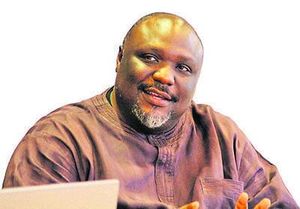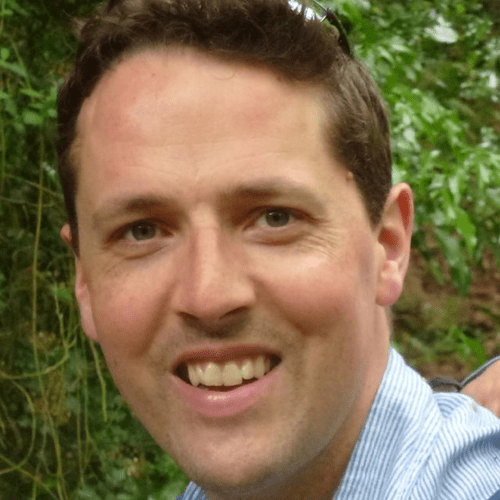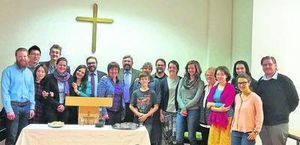What motivates a father with an expectant wife to travel to an outbreak of one of the world’s deadliest diseases? Sheila Marshall talks to Dr James Meiring about faith and hope in the middle of an Ebola epidemic.
Sheila: How did you decide to go to Sierra Leone?
James: At the heart of my decision to volunteer for the UK Ebola response was a conviction of our responsibility to help our fellow man when we can.God asked Cain: ‘Where is your brother’, and he said, ‘Am I my brother’s keeper?’ It’s similar to the story of the Good Samaritan when Jesus was asked: ‘Who is my neighbour?’
I feel that human beings, even more so Christians, have a responsibility for our fellow man that doesn’t end with family ties or the arbitrary drawing of borders. I’m an infectious disease doctor, and Ebola is an infectious disease. I felt that I should at least put myself forward, because there was something I could do to help.
People would say, ‘How could you leave behind your 2-year-old?’ I was very well trained and the protective equipment we used was excellent, so the actual risk of contracting Ebola and putting my family at risk was exceptionally small.
There were 2-year-olds in West Africa who would never see their parents again because of Ebola. If I could do anything to prevent that from happening, then I think my 2-year-old could be without me for 6 weeks.
SM: You’re saying those who can help should help?
JM: ‘To whom much is given, much is expected’. There’s gross human suffering happening all the time, all over the world; and in the West we live in a strange bubble in terms of geography and human history, where we’re largely protected from it. Maybe as a Christian church we should be challenged to help where we can, more than we are.

SM: What was your toughest challenge?
JM: Coping with the sickest people I’ve ever had to look after. It was 35oC and I had to wear a big yellow suit, a hood, ski goggles and two pairs of gloves. This meant I could only be inside the unit for a maximum of two hours.
At one point we had over 70 patients in our treatment centre, which meant you could only spend two minutes per patient. If you spent four to five minutes with one patient at the beginning, there was a patient at the end whom you wouldn’t see at all.
Five or six people died daily and it felt like there was little we could do to stop it. There was a whole ward of under 5-year-olds who didn’t survive and that was very challenging, emotionally and spiritually.
SM: What does ‘hope’ look like in that environment?
JM: It was widely reported that there is no treatment for Ebola and by that they mean there is no specific antiviral treatment for the actual virus. But if you look at the patients that made it to the West, their mortality was less than 10 per cent.
If you support people’s organs for long enough, by giving them intravenous fluid, antibiotics or blood products, you allow their immune system to fight the virus and they don’t die of Ebola. There is treatment, but we weren’t able to administer it in Sierra Leone because the context was so difficult. However, a lot of people survived that would not have, had we not been there.
As terrible as Ebola is, hope comes from the fact that there is a good God who’s in charge of it all. I don’t understand the individual circumstances, but I know he understands suffering more than I ever could. So Christ’s cross is where I get my hope from in that situation. God knows, and he’s ultimately done something about it all through Jesus Christ.
SM: What was it like to talk about your faith to colleagues with no faith?
JM: At the beginning of a shift, the Sierra Leonean healthcare workers would always sing and pray before they started work. Because I was the lead doctor for our sub-team, and West African culture is somewhat hierarchical, they would ask me to pray. I think some of my colleagues saw the sense of community, togetherness and dependence that a unifying faith in God brings.
At the same time, the question of the existence of a good God in the face of such suffering was a very difficult question. There were some people who didn’t want to talk about it at all, and that’s fine. The great benefit of working in a secular organisation is that you were shoulder-to-shoulder with people who weren’t from Christian backgrounds.
SM: Can you give an example of God’s grace?
JM: God has used the experience in my heart to care more about the inequality that exists in the world. When I got home from Sierra Leone I was giving my 2-year-old boy his breakfast and it hit me that this was the first 2-year-old that I met after 6 weeks who didn’t have Ebola.
I thought: ‘He’s never going to get or see this terrible disease’. It made me cry at the time. I think it’s wrong that we can live such different lives from human beings who, equally, are made in the image of God.
SM: How has your experience impacted how you relate to God?
JM: Ebola has taught me a profound explanation of sin. Ebola is this silent thing. You can’t see it. Those who lived through the civil war there said you could see your enemy in that war, but not Ebola. Who knows whether it was in that bit of vomit on your glove?

Is that not just what sin is like? We can’t see it and often we don’t realise it, but it produces death and misery. We were working hard in that Ebola unit and, at the time, it didn’t really feel like we were making much difference. I need the Lord Jesus to come and help me, fix me and sort me out.
I got a renewed appreciation for the truth of the gospel. I’m a sinner saved by grace, and the sin and suffering we see around us will one day be gone.
SM: What’s the best way for ET readers to support those affected by Ebola?
JM: Whilst West Africa has cleared the virus, the effects of the outbreak are significant and long-lasting, particularly for those orphaned by this disease. Street Child Sierra Leone are doing good work. They have identified immediate needs (such as food) and long-term needs (e.g. school fees and medical care).
SM: How can we pray?
JM: Christian churches are mixed in their understanding and teaching of the Bible. Across Sierra Leone and in the churches a clear, profound explanation of the gospel is needed. That’s something we can pray for. And of course now that they have got to zero cases of Ebola, they stay at zero.
SM: What treat do you miss from Sierra Leone that you can’t get in the UK?
JM: The mangos are amazing!
For more about James’ time in Sierra Leone, see http://sheffieldtosierra.org/author/jamesmeiring. You can support a Sierra Leonean orphan through http://www.street-child.co.uk














